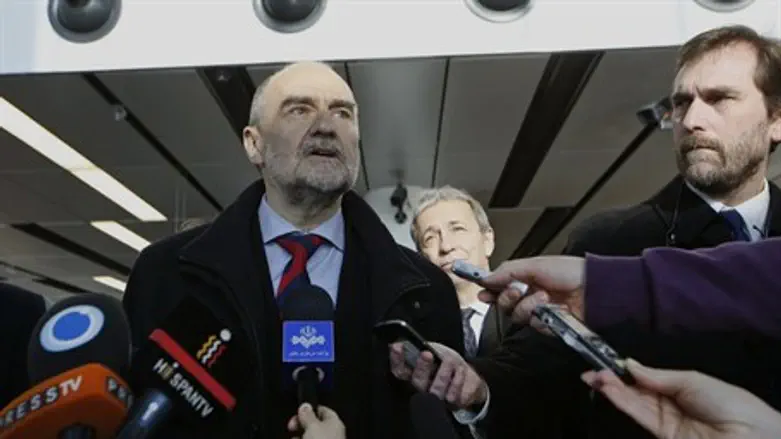
Iran and the UN nuclear watchdog probing its atomic ambitions geared up on Tuesday for a new round of talks, with Tehran expressing hope for a deal but no apparent optimism on the agency's part, AFP reported.
Experts are visiting Iran for the second time in a month, hoping for a deal requiring Tehran to respond to what the agency calls "overall, credible" evidence of nuclear weapons research work being conducted until 2003 and possibly since.
"We hope for a comprehensive agreement to be reached in discussions" on Wednesday, when International Atomic Energy Agency (IAEA) experts are expected in Tehran for a day of intense discussions, foreign ministry spokesman Ramin Mehmanparast said, according to AFP.
But an agreement would only be possible if Iran's "nuclear rights" are recognized by the UN agency, he said.
"If we are to reach a deal and address alleged concerns, the other party's commitments should be fully clear... We expect the agency to fully respect our nuclear rights," said Mehmanparast.
In Vienna, chief UN atomic inspector Herman Nackaerts called on Iran to be "constructive" as he left for Tehran with an eight-person team.
"Throughout this process, the director general has always said that we are approaching these talks in a constructive spirit," Nackaerts told reporters.
"Also this time we are approaching it in the same spirit and we trust that Iran will work with us in the same spirit," he said.
On Friday, the IAEA head Yukiya Amano said he was "not necessarily optimistic," and one Western diplomat told AFP on Sunday "there still remain some pretty big disagreements" with Tehran.
Meanwhile, Mehmanparast implicitly ruled out the possibility of the IAEA team being granted access to Parchin, a military base near Tehran where the UN agency suspects experiments with explosives capable of triggering a nuclear weapon could have been carried out.
"Parchin has no connection with Iran's nuclear activities," Mehmanparast said, adding that access to it could be discussed but only in the context of a possible agreement.
Wednesday's talks will be closely monitored by the P5+1 group -- Britain, China, France, Russia, the United States and Germany -- engaging Tehran in stalled parallel negotiations over the nuclear program.
Mehmanparast said Tehran and the world powers had agreed on a date but not the venue for the next round of talks.
The date, which he did not specify, "was agreed last night in a phone conversation" between Iran's deputy nuclear negotiator Ali Bagheri and EU foreign policy deputy chief Helga Schmid.
He said talks would resume when the venue for talks is agreed by all sides.
Tehran and the P5+1 held three high-level talks in 2012, in a bid to address Western fears that Iran's atomic energy program is aimed at acquiring a weapons capability.
Their last meeting, which all but failed, was held in Moscow in June. Tehran rejected P5+1 calls for it to scale back its nuclear enrichment activities and asked for substantial sanctions relief.
Iran vehemently denies seeking or ever having wanted the bomb. On Tuesday, Iran's supreme leader, Ayatollah Ali Khamenei, issued a religious decree banning nuclear weapons, claiming the decree is binding for the government and should be enough to end the barrage of questions and accusations about Iran's nuclear program.
Mehmanparast said the decree was binding.
"The fatwa is of utmost importance in clarifying Iran's nuclear activities," he said, dismissing Western doubts that the fatwa only served a religious purpose and was not necessarily an obligation for the government.
